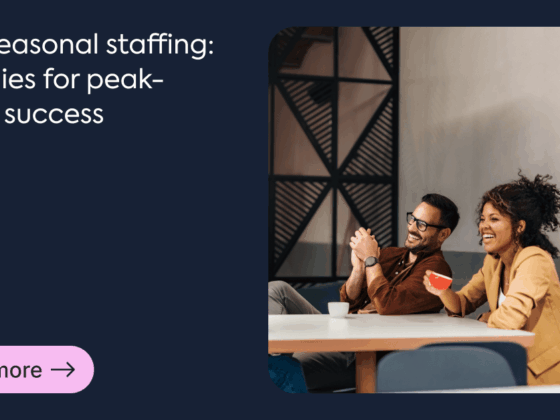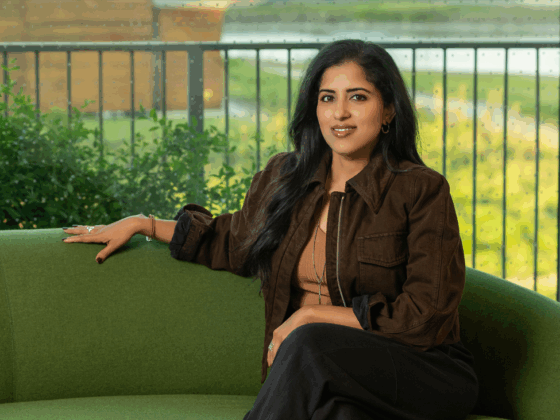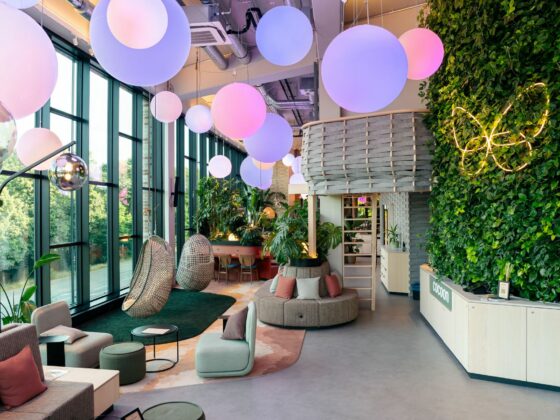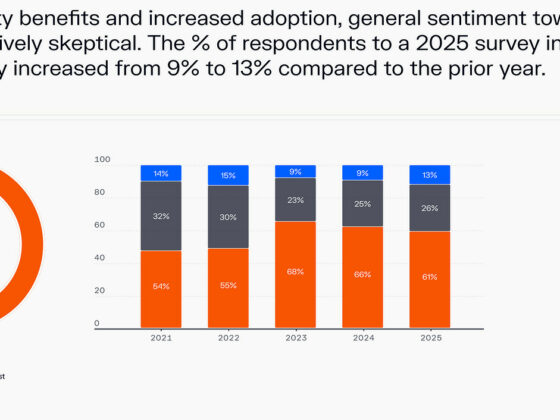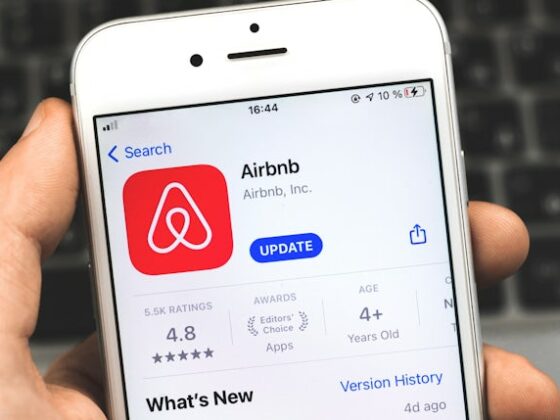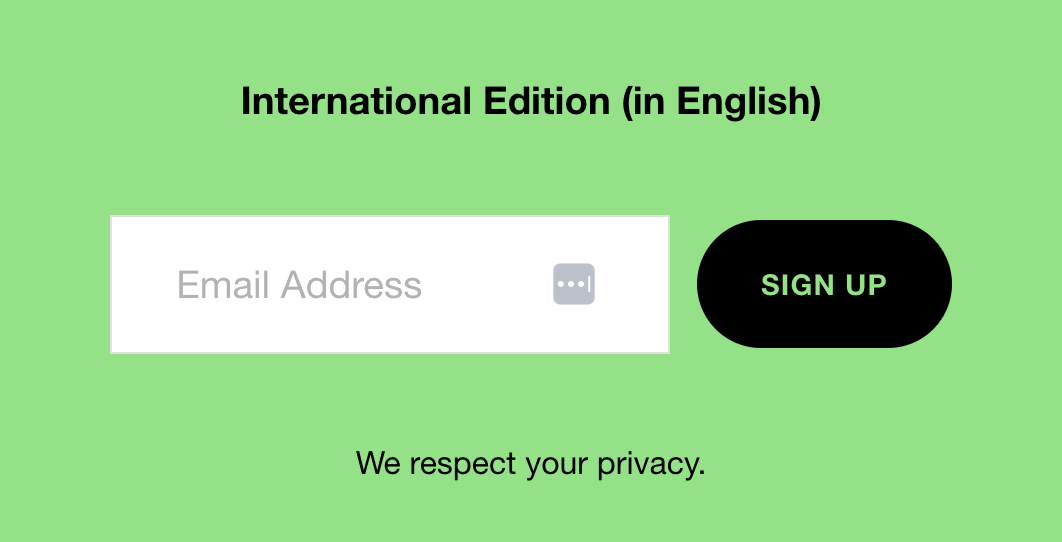Source: https://www.youtube.com/watch?v=DXCemrvaNKQ
0:00I do think the story of the blue link is far from over. People want to hear from other people, an evolution in some of
0:06what they’re interested in, content that is that is rich. People want to connect with humans and that human spirit and I
0:12think web content um short form video will continue to flourish. Sometimes people don’t seek provenence on the
0:19LLMs. They come to Google and they seek their providence. So we see a lot of people that go ask the question and they come to Google to double check it. Um
0:26search live is coming to India soon. We’re going to continue to push both bringing innovations rapidly to India
0:32but also thinking about where um does India actually prove a ground for innovating itself.
0:38Our guest today is Elizabeth Reed, Google’s global head of search.
0:43Elizabeth or Liz joined Google in 2003 as the first woman engineer in the
0:50company’s New York office. She joined a team called Google Local, which has
0:56become the foundation of what you see on Google Maps today. Today, of course, Liz
1:02is steering how billions of people in the world discover information on its
1:08most popular search platform. In this conversation, we talk to Liz about how
1:13AI is reshaping search. Is it with search or is it replacing it? We press
1:18her a little on whether more and more people are shifting their questions to standalone LLMs. How companies are
1:24rethinking SEOs in an AI first world. How Google is reinventing it search to
1:30become more friendly and more conversational while keeping trusted sources up front. And of course, we ask
1:36her how and where India features in the big Google search story.
1:42[Music]
1:57[Music]
2:04Liz, very warm welcome to the latest episode of corner office conversation.
2:09Thank you so much for having me today. I’ve heard you and also Mr. Sundar Pichai repeat the fact that the customer
2:16is Google’s northstar keeping that as a focal point. When did you first realize
2:23that AI and search had to marry? Sure. Um well actually AI um coming into
2:30search has been for many years now. Um if you take the first examples BERT and trans um and mum were introductions of
2:38transformers in there. Um they were more um what I would call behind the scenes. So they were the use
2:43of AI more to affect ranking. Um as the technology proceeded and starting with mom but really more with AI overviews.
2:51Um the the role of AI became much more at the feature level. It became much more visible to users. But it’s really
2:56been an evolution. Um and that evolution is partly um based really on where the
3:02tech was. What could you trust? What was fast enough? How was the information qual high quality enough? And so as we
3:08went along we could bring it further and further. So I don’t think there was ever a single moment where it was like oh suddenly we needed to do it. Um we just
3:15gained more understanding, we gained more conviction about how to bring them together. Um and despite all the several
3:22last years, I think we’re still really at the beginning. I think there’s still huge way to think about how we use AI to
3:27reinvent search. Um and it’s really one of the most exciting times in search ever. Would you say uh big tech
3:32companies like Google take a little longer are taking a little longer to respond to the innovation than more
3:39nimble-footed uh you know startups or or slightly smaller companies like say a perplexity do you do you do you face
3:46that problem um I think in um in search one of the things that um cinder will talk about is
3:53this idea of bold and responsible so we want to move quickly but we also have
3:59you know multiple billion people who trust us every day. And so figuring out that right balance I think is really
4:04important. Um I think also if you go back in time in Google, people sort of think of Google in regards to Google
4:10search, Google maps, Chrome. Um we were not the first search engine. We were not the first map um application. We were
4:16not the first browser. Um we really want to come in and innovate early but also do so in a way that produces a really
4:23high quality product. Um and that is really thoughtful to the trust that people place in us. Um, and I think
4:28we’re really at the beginning of the journey um, as opposed to at the end and really excited about what the future is
4:34for search. Let’s go a little deeper. Um, you know, I’ve heard and seen multiple interviews
4:40of yours uh, and and what you’ve written saying that the one big thing that has
4:47changed now in terms of how people search is that the questions are longer and much more. In fact, I think they are
4:542 to 3x longer. uh what else has changed in the way people are approaching Google
5:00search? Yeah. Uh so there’s a few different aspects. Um one if you think about the 2 to 3x longer then the question is why
5:05are they 2 to 3x longer? Um and they’re longer because people are giving more context. Um they’re putting multiple
5:11constraints. Okay? If they’re going to go find a restaurant, they’re not just searching for restaurants. They’re not just saying kid-friendly restaurants.
5:17They’re saying I have a four-year-old and a seven-year-old. I need um to ensure it’s familyfriendly, but I need
5:24to be outside. can you please find me restaurants? Right? So, they’re they’re expressing more of what they want. Um they’re also just asking more questions,
5:31right? Um there’s this sort of idea that many people have that the number of questions you have is sort of fixed and
5:37that you’re already bringing them all. But that’s not actually what we see. What we see is there’s sort of an um
5:42implicit calculation that users have which is like is it worth my time? Am I confident that a response is going
5:49to come? Is it going to take too much effort? How do I think about that? And so when you lower the bar um to actually
5:55ask that question and get a good response, people ask more questions. And so they ask longer questions, but they also just pick up the phone and they ask
6:02a question they wouldn’t have otherwise asked um because it just feels like now it’s worth their time. They start
6:08exploring an idea or they ask a question and then they ask a follow-up on AI mode because it’s just so much easier to do a
6:14follow-up. If I had to go repeat my entire context, all everything I said before, it wouldn’t be worth my time.
6:19But if I can just ask a quick follow-up, then I’ll go ask it. And so we see people just asking more questions, not
6:24just harder questions. Got it. Uh is it possible to quantify or give me some sense of what the
6:31adaptation of AI mode has been like? So we’re still very much early on in AI
6:37mode at this point. Um so far with India and the US, we’re already seeing over
6:42100 million active users per month. Okay. Um we just started to roll it out in more countries. Um and I think we’ll
6:48continue to see it grow. Um but we also think about AI mode um and AI overviews
6:53really as as two different sides of the coin. Um and so we have both a lot of people using AI mode but also a lot of
7:00people using AI overviews and exploring how the two of them go together. Right. Right. And are you happy with the
7:06100 million users that you’ve got in India say or or the US? Um uh you know we always seek to try and
7:13answer more and more user needs. Um so we’ll continue to do that but we’re only a few months out if you think about it.
7:18Um we just started rolling out AIM mode to the US um in May. We started rolling out late June uh to India. So we’ve been
7:26pretty happy with the reception so far. So unlike what a lot of people say, the story of the blue link is far from over.
7:35I do think the story of the blue link is far from over. Um I think uh it is the case that many many people want to hear
7:42from other people. Okay. Um, and we see this true um, both with our younger
7:48users and older users, right? Um, AI can help make quick questions easier. It can
7:53help pull information from different sources together. Um, but whether it’s your fashion advice or a highstakes
7:59decision you’re going to make on a purchase, um, they often want to hear not just from what the model has to say,
8:04but they want to hear from other people. And so, um, what we see is that one of the things people really like about AI
8:10overviews is that ability to pull together the AI response. um and the web links. I do think we see um an evolution
8:18in some of what they’re interested in and that they want that that depth of experience. They want that personal
8:24view. Um so they’re more interested in web content that is that is rich that is
8:29not sort of like just the shallow basic fact um but brings in the unique perspective or that creator view. Um but
8:36to the extent that like people want to connect with humans and that human spirit and the fact that the world is
8:42very diverse, right? one answer isn’t the same for everyone. Um, I think there’s going to continue to be a huge
8:47demand to hear directly from people. I like I like the the value of AI responses, but I also don’t like to
8:53everyone when they’re like, “So, you know, I’m going to tell you what so and so said.” I’m like, “I want to hear what so and so said directly, right? Don’t
8:58tell me what so and so said. Connect me to that.” Right? And so to that extent that you don’t want to hear um the
9:05interpretation of someone but you want to hear from them directly then I think web content um short form video um user
9:12created content will continue to flourish right and is that is that happening now?
9:17Do I directly reach forums where I get to hear actual experts speaking instead
9:22of the summary or is that still work in progress? So as a um as a user one one
9:28of the biggest things you would have seen in search over the last few years and it shows up in in AI overviews and
9:34AI mode too um but certainly throughout the search product is that there is more and more content from um user generated
9:41um sources right um you see more demand for forum content you see more demand for short form video um and we respond
9:47to your previous point about the customer the user being our northstar um so as we’ve seen more demand for that
9:52we’ve integrated more of that content in um and I think It’s an area for continued exploration. Um, we’re also
9:58been experimenting with things like inline links within AI overviews and AI mode. So, say you know according to the
10:05following site or according to this creator um and then linking directly to that creator so you can hear more. Um,
10:11but I do think that’s really essential that we continue to highlight um the voices of the creators of the trusted
10:18sources um of these folks with deep expertise and experience in spaces.
10:24Right. Right. Do you see a gap in knowing the intent of the user? For example, when I go to an LLM, I say I
10:31need to email my boss or I need to email my listeners this. Uh but when I have
10:37always done Google searches, the intent is is is never very clear. I think there is a uh there is a gap there in
10:45synthesis. Uh do you is Google still trying to sort of fill that gap? I think
10:51on on the good side to the point about two to 3x queries um that that you were
10:56mentioning two to threex longer queries as you were mentioning um we do see people are adapting um but there is
11:02there is definitely room to go there’s a lot of people have been using Google for years and they have an expectation about
11:08what’s possible um and so we’re going to continue to experiment in how does the user experience change not just as a
11:16result so that people know they can ask longer queries and so people can provide provide more of the context today um in
11:22a way that if they tried to do so two years ago, it wouldn’t have been useful, but they don’t do it right. They don’t
11:28realize they can do it. And so um that is a an interesting user challenge to
11:34figure out how you can teach people both if you love expressing this query this way, great. Um but if you want to share
11:39more context, you can. Um and so we’ll continue and then also with personalization, right? How do you
11:45maintain that statefulness, that personalization? Um, so a user doesn’t even always have to express that context.
11:51Liz, one thing uh that I realized is that um a lot of people when they ask
11:58questions to standalone LLMs, they don’t seek provenence. I mean in the sense of
12:03where the information came from etc. I do of course but even so uh your search
12:10quantum of searches or or the number of searches you say have really gone up.
12:16How has that really happened? Um well, so I would say a couple of things. Um sometimes people don’t seek
12:21providence on the LLMs. They come to Google and they seek their providence. So we see a lot of people go ask the question and then they come to Google to
12:27double check it. Um so you see that. But I think it really goes back to this idea
12:32um that this that we’re really in this expansionary moment. Okay. Um that the number of questions that people ask is
12:39not fixed. So there’s no um sort of zero sum nature here. Okay. Um actually as
12:46the tools get more useful people are just asking many many more questions and so um it’s actually possible that
12:51everyone can grow at the same maybe not everyone but lots of people including Google can grow um in this time um
12:58because it’s just much easier to ask questions and it’s just more rewarding and um you know if you can just ask a
13:04basic question about restaurants in your town why bother but if you can share all of this information about where you’re
13:09going then maybe it’s worth it um if you feel like to go learn a new subject
13:14is very hard um then you’re not going to necessarily spend the time. If it feels really easy then you can take five minutes out. Okay. Um I used AI
13:21overviews to learn a bunch about cricket. I still don’t know very much about cricket so don’t quiz me on my cricketut. Um but I learned various
13:28facts over the time because I had friends um and co-workers who were big into cricket and they would make these
13:33statements. I’d be like I don’t know what you’re talking about. And so I would just type this question because I didn’t want to show up just how uh dumb
13:38my my cricket knowledge was. So I just ask this question. I get a response. And so um it really just is this moment
13:44where the pie is growing in a pretty tremendous way. But but but I love how uh I think AI
13:51overviews has seen a 10% increase in usage uh uh and and also your clicks
13:57have grown. So maybe many of those clicks are coming from other LLMs when they’re trying to sort of fact check
14:03what they’ve got. I I I love that. But uh but is there are there features from
14:08other LLMs that internally Google would want to match uh you know be it context.
14:15So when I ask a question today on one conversation versus when I ask a question on that same conversation
14:22tomorrow I don’t have to give context because the LLM usually knows. Uh then there’s of course inbuilt other apps. If
14:29I if I want to for example generate a picture on midjourney, I can ask chat GPT to give me a proper prompt. Uh which
14:36of these features do you think that you really want to match and which ones uh
14:42would you would you not take because that they would sort of maybe dilute Google’s brand and the kind of structure
14:47that you have. So I think about this um a little bit differently. one is sort of what are the
14:53um the capabilities that LLMs provide um and how do we unlock them for search um
14:59and then sort of what is paramount to what makes a search product right um so so things like um context and
15:05personalization we talked at IO um and started to roll out um some of the features and we’ll continue to roll out
15:10more of those um this question about like how do you do follow-up questions easily um both like in the session and
15:17on on from session to session right um has been pretty critical to how we think about AI mode. Um we’ve talked um at IO
15:25and started to roll out in the US and hopefully soon um to India more of some of the agentic capabilities, right? So
15:31these fundamental things where where a capability unlocks um either new
15:36questions you can ask or the ability to ask the questions more easily. We talked at IO um about the goal of making it
15:44possible that you can ask truly anything on search and that you can do so effortlessly, right? So what are the things that you bring in from LLMs that
15:51make it effortless? So I think you know anytime we feel like it does make it effortless like then we want to take a
15:56look at those underlying capabilities. Um on the other hand I think there is a few things that are really essential to
16:01how we think about search. We want to do everything we can to maintain that trust and to nurture that trust. Okay. So if
16:07we feel like we have to make a trade-off that breaks the trust then we don’t want to do that. A second thing that is essential is we feel like people do come
16:14to search often to connect to other voices to hear from other people. And so
16:19we don’t view AI as replacing search um in the search experience. We view it as augmenting as enabling us to reinvent
16:26search. Um and so how do we bring those voices forward and allow you um to get started on Google but to make it easy
16:32for you um to click out to the web to go deeper um throughout. And so um that
16:38that sort of um web forward ecosystem for part of an AI um search experience
16:44as well as trust are things that we view as something we can’t break. So rookie
16:50question here and I may be asking you to repeat yourself but when you pull your deep research from multiple sources. Uh
16:58so the ranking of those search results is this the same kind of process that you use on in the blue link format? I
17:04mean just from a uh trust point of view obviously. Yeah. Um so um mostly yes. Okay. So what
17:12we do with um uh something like deep search is we are querying web search um
17:18underlying ranking. And so in that sense it’s the same. Um it’s different in the sense that the the a question a user is
17:25asking with deep research is often more complex than any single web search will go. And so we’ll take that search query
17:33and we’ll break it into several queries. Right? Okay. Um but once you issue those
17:38queries, we’re basically hitting our underlying core web ranking um the same way we would if you had sort of gotten
17:44the traditional blue links. And so um we are really building on top of that um long tradition and expertise and trust
17:52in web ranking but doing it to answer questions that are not possible as a single query. Um I still think we’re
17:57going to we’ll continue to innovate in that space. How do you get better at doing the query fan out? um how do we
18:03get better at the model, understanding how to take advantage of those different um links to give the most high quality
18:09response and pull it together. Um but it is really built on the same underlying web ranking.
18:15Okay, let me uh flip this a little bit and talk about companies that feature on those blue links. Okay, or entities that
18:22feature. How is discoverability changing? you know, how is the SEO playbook changing in the era of, you
18:29know, AI search and AI old view and AI mode? Um, so I think there’s a couple of
18:34different things um for for companies to think about. In some sense, the the guidance is very much the same and in
18:40some ways it’s different. So um the guidance that we’ve given that we would continue is people should really produce
18:46content that users care about and not think about building content for search engines. Okay. Um, but that only becomes
18:53um more pronounced now. Okay. If you produce content that’s very shallow that you’re just going to hope is ranking at
19:00the top um but doesn’t really have much to say, then your content really doesn’t have much more than like an AI um
19:06overview would give in the first place. Okay? So, people aren’t going to want to click go check the same fact that comes. Okay? Um, but if you produce really high
19:14quality content, you bring your perspective in, you’re bringing your experience, um, you’re doing something
19:19that you want to read for a minute or something, okay, then users are going to want to click in further, okay? Because they’re not clicking on the link to get
19:26that 5-second response. They’re clicking on the link to go deeper, okay? Um, so
19:31there’s more push on um sort of niche content, more push on um sort of the
19:38detailed understanding of of the of the space that you’re coming in um across.
19:43Um so less manufacturing of content and more like actually putting yourself in the space. Um the other thing I would
19:50say is we would encourage um uh publishers and creators to think about
19:55it in a different way in that um there’s what what we see in some of the
20:01the traffic is that there’s less of what we call bounce clicks, okay? Where a user clicks and they immediately click
20:07back, right? They’re like, “Oh, I thought this was going to be useful. No, it’s not.” Okay? Um and because we’re giving enough contacts, people kind of
20:13know and they don’t have to do as many of those bounce clicks, okay? So, um, what you do see is a lot of excitement
20:19on the the deep clicks. Okay. And so, I think that like as as a publisher, you
20:25want to really think about like what is the user’s experience when they get to my site, okay? Um, and so sort of be
20:31optimizing for a great experience when you land on that page. Um, because
20:36people are going to want to go there not to just get that 5-second thing, but to actually go go deeper on that. Um and so
20:44in some sense that’s always the content we wanted people to create and it’s always the content that users really wanted to see but you kind of can’t get
20:51away with content um in the old way. Now you really do have to build that content
20:56for users. So in a recent interview Mr. Sundar Pichai said that the ad revenue from AI
21:02overview search results is the same as without. uh now I may be getting into a
21:08little complicated territory here but in the simplest possible way a lot of our viewers would want to understand how is
21:13that possible so I think there’s multiple different dynamics going on um uh on the one hand
21:20sometimes when AI overviews show up the ads are lower on the page um on the other hand the search traffic is just
21:26growing overall right so we see with AI overviews people issue more queries and so um at the highest level the two
21:32roughly balance out okay let’s come to agentic AI um how so as a big tech company you can’t chase
21:39every innovation that you see that others are also chasing right and agentic AI is still you know in its in
21:47its somewhat nent stages and I’m again talking about this as a user uh project
21:53mariner is of course still a prototype but do you see the human agent interactions really evolving to where
22:01people are saying they would evolve and you mentioned India also in this context. So I would like you to double
22:06click on that as well. Sure. Um well so I think the word agentic means a lot of things to
22:12different people um as they come. I think the way that we um think about in
22:18search is if you go back to this idea that you can ask for anything effortlessly. Um where is their grunt
22:23work? Where is there a bunch of work that a user just doesn’t want to spend time. It’s too much effort. And how do
22:28we take that work out of it? Okay. Um and in some sense things like AI mode took out of the groundwork of sometimes
22:34having to issue many many queries and pulling the information together by doing it. Okay. Um but then you can think about at the next level whether
22:40it’s from a productivity perspective or maybe dealing with transactions. How can you actually reduce that? Now there’s an
22:46interesting part to your point which is um the tech is nent and also user expectations are changing and early on
22:54um and so we have to figure out how we both take out the groundwork but don’t um eliminate control where a user wants
23:00it. Okay. So maybe we can do in some cases um if a transaction is really
23:05important, maybe we can do all the a lot of the work to get to the point where like most of the initial form filling is
23:11there, but you maybe still want to click yes on the transaction rather than have us do the final transaction for you,
23:16right? Okay. Um on the other hand, maybe something is repeat and you’re just like, I just want to do this again and
23:22again. Fine. Okay. Um, one of the things we did um, in search over time is um,
23:30help automate a bunch of the phone calls. Okay, so we’ve been expanding the ability like if you’re trying to get a
23:35haircut or you’re trying to get a plumber or something where actually in a bunch of cases it’s not even just about the browser um, doing that like you
23:42actually at least in the US you actually have to pick up the phone and call a whole bunch of plumbers to get out basic
23:47information and then go figure out okay can we eliminate um, the work around that? And so we’ve done work on that.
23:54And so we think about that also from uh a tech perspective is there not a single solution. Maybe we have to automate some
24:00of your phone calls. Maybe we have to automate some of your browser actions. Maybe there’s times where we integrate on the API side. And we should pull them
24:07all together. Um so that the experience feels fast. It feels like it’s empowering to you. Um it feels like it’s
24:14good for the ecosystem as well, right? So we don’t want to disintermediate the partners that we’re working with. um
24:20there’s different aspects that may matter to them. Do they still have a loyalty and relationship with their customer? Um do they still have the
24:27ability to upsell? And so when we want to think about a experiences, we really want to work with them so that the user
24:32experience feels as easy as possible. The user feels empowered, but the partner also feels great about that as
24:38we go. Um and I think it’s something that will change every six months. Um and it’ll be easier in some industries
24:45than others. Um the stakes are higher in some cases than others. Um and we’ll continue that. Um to my point about
24:51India earlier, um India is like really such an important market um for search.
24:57Um it’s one of our top markets overall. It’s our biggest market for lens, our biggest market for voice. Um it’s a
25:05market that like we brought AIM mode to India um right after the US before any other country um and within basically a
25:12month of rolling it out at scale in the US. Um, so it’s such a critical market for us to
25:17innovate on. And so, you know, if I looked a few years ago, if we launched
25:23something in the US, like I don’t know, maybe a year or 18 months later, it
25:28would come. Now, we’re really trying to shrink it down. Um, uh, you know, two months, if not weeks. Um, search live is
25:35coming to India soon. I’m delighted to share. Um so we’re going to continue to push on um both bringing innovations
25:43rapidly to India but also thinking about where um does India actually prove a
25:49ground for innovating itself like it’s not always going to be second you know oftentimes it will be second and not
25:54third fourth or fifth but sometimes I think it’ll even be first going forward um India is really rapid at at adapting
26:01um a bunch of the AI innovations and you know when you see the uptake with things like lens and voice it really feels like
26:08it’s pushing the limit. Um the users are really challenging the systems and so we really need to respond and innovate in
26:13them. Great. Uh in terms of tech talent, how is India contributing to Google’s shift
26:19from information to intelligence? Uh we have a great we have a great team
26:24in search here um uh and and it actually cuts across our whole system. So um from
26:31the underlying infrastructure um that makes it possible to serve at low latency and high capacity um to what is
26:39our work on innovating um in the actual core intelligence and the quality of the
26:44system um all the way up through um some of our different vertical experiences like sports or local and travel um we
26:52have quite a meaningful presence in search. I also know that um beyond just search we work closely with Google deep
26:57mind which also has a presence um in India here and I would say um the India
27:03team here is both great at helping us do things like localizing for the market and really understand what it is but
27:08they aren’t just doing India specific work they’re really building both foundational work and working to figure
27:14out how it excels in the country. Right. Right. Speaking of localizing, in fact in a recent podcast uh one of the
27:20things you mentioned as the huge potential of AI is how it’s revolutionizing the use of language and
27:26in fact you specifically mentioned Hindi. Now in India the landscape is that a lot of local um AI first
27:34companies are trying various things uh in terms of vernacular LLM and how to
27:40use AI or how to use local languages in in in terms of AI. uh but they have seen
27:46very limited success. Would Google with its huge you know uh treasure of data
27:52and its capabilities do something on that front in India? Um I think this is an area we’re going
27:58to continue to invest in quite deeply. Um uh we’ve sort of had state-of-the-art models on language understanding and
28:04been investing in them um for over a decade now. um you know we brought um
28:10not just Hindi rapidly to AI mode and AI reviews but actually lost um launched one of our first cross language
28:17experiences with AI overviews toggling between Hindi and English last year as they come um and we rolled out AI
28:24overviews in languages beyond Hindi and look to do the same with AI mode. I think one of the things that’s really
28:29exciting um about what LLM can do is that um not all the content um is
28:37available in all the languages, right? Certain content is available in one language but not in the other. And um
28:44historically if it the content didn’t exist on the web in your language, it was kind of locked out from from those
28:50users, right? Um, and LLMs are allowing us to to sort of take the learnings from
28:56one language and output them in a way that’s understandable for the users. I think there’s still a lot of innovation
29:01to go. Um, to your point about how do you get vernacular right? Um, how do you really understand um, cultural topics in
29:10the in the question? How do you mix, you know, if we we talk about Hindi, but it’s really in many cases not just Hindi
29:15or English, but English in there. How do you adapt to that question? um how do you actually make it such that
29:22you really feel like language is not a barrier right um I feel like everyone
29:29you know we made this comment where Larry and Sergey set this vision of make information universally accessible okay
29:36but it hasn’t really been universally accessible in many ways with language but it’s also not just even with um not
29:42just across languages but also even within a language what’s your level of literacy on something okay Um, I may
29:49consider myself to have fairly good tech literacy. I have okay financial literacy. I have pretty poor medical
29:55literacy, right? Like you give me a medical paper and I’m like, “Oh my gosh, I’m going to have to spend five hours.” Okay. Um, but if I can learn about a
30:01topic that matters to my daughter, that’s really powerful to me across. And so, um, I think both cross language and
30:09within a language and across voice versus written. Um, we also see this with visual understanding, right? I
30:15don’t know what it is. um you know I come to India I see a sign in India I have no idea what it says if you ask me
30:21to type it in like I have no idea how to even transcribe okay but I can use lens and I can translate it in the one um and
30:28so I think there’s a lot of exciting work ahead that really just unlocks um intelligence for everyone right it’s not
30:34enough for access to information if you don’t understand it and now we’ll be able to help people understand
30:40finally I’ll refer to another podcast um uh and this is a few years back and and
30:47you you told the host, “If I were to take Google away today, you would go nuts.” Do you still think that’s true?
30:54I think uh for for most people, absolutely. I think a lot of people like what we see from our data is that people
31:00are still using Google and even even as sometimes they’re adopting new tools. Um they continue to use Google and that’s
31:06because it really is um much more overall an expansionary moment. Um, there’s also there’s a tendency for us
31:13to forget sometimes about what you use search for. Like you use search to navigate to URLs for all the
31:18advancements with LLMs. People are still clicking to their favorite sites, right? Um, you use it to go and browse. You use
31:25it to go look up your favorite Hollywood actor and you don’t even know what to ask. You just want to know what’s going on and we’ll bring a visual SER. Um, all
31:33that said, it’s a space that we um are going to continue to innovate, right? We always want to figure out what is um the
31:41next frontier for being the most helpful information um to actually providing in
31:46a way that feels easy as possible. And so um we’re going to be relentless at that. Um but um you know I really
31:55believe that we will continue to have search be as um important for people over the next decade as it was for the
32:02last couple. Liz, thank you so much for joining us on Corner Office Conversation. Thank you so much for having me. A pleasure and I
32:08hope to chat with you again sometime soon. Absolutely. That’s it for today. We hope you liked
32:14this exclusive interview. It was produced by me, Vine Jooshi and Rajasthound designed by Amrid Reji.
32:21Please subscribe to Corner Office Conversation where we talk to the most interesting business leaders from India
32:26and the world. A new episode drops every alternate Monday wherever you get your podcasts. Keep listening. Have a good
32:33week.

